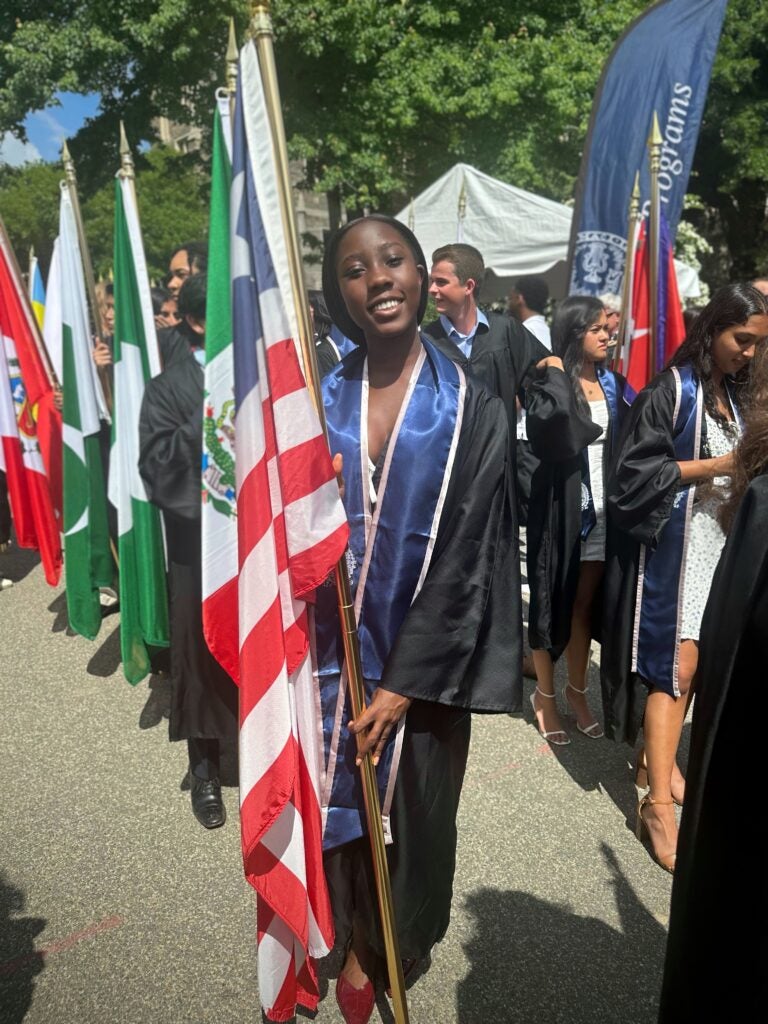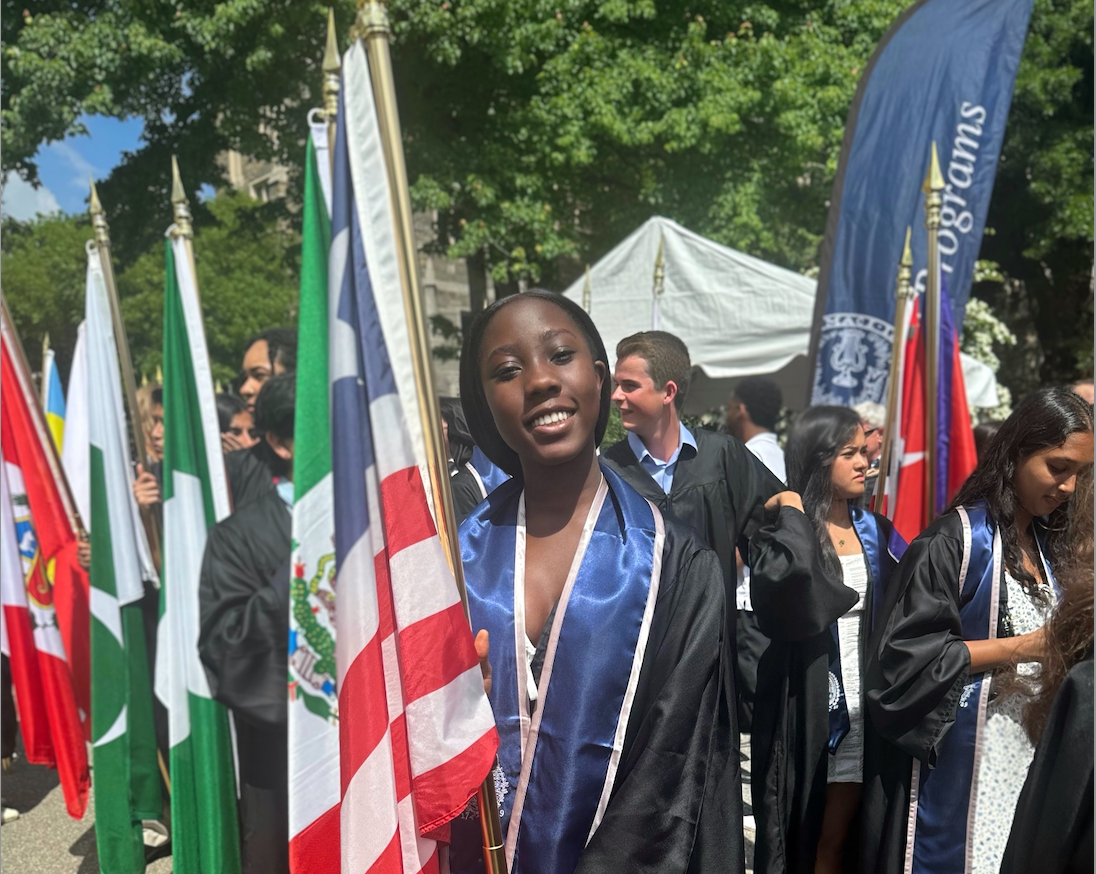Alumni Spotlight – Divinna Boyd

Caption: Divinna proudly carrying Liberia’s flag during the 2025 Senior Convocation, hopeful that one day she will return home and help create lasting change.
Why did you choose the JUPS major?
I was originally planning to major in Global Health and wanted to do JUPS as a minor, but when I took the Intro to JUPS class, I enjoyed every one of the topics we touched on. These topics felt like the foundation of everything—whether that be healthcare, security, etc. The JUPS curriculum felt grounding for me to learn about unjust systems and structures in our world. I also knew this major could lead into any path I would want to take in the future, including my goals of wanting to work in health care policy and increasing equity and women’s health rights. As I took more JUPS courses, JUPS helped me understand that the disparities in healthcare are structural and deeply rooted in injustices, and therefore must be dismantled through policy and systemic change.
What has been your path since graduating from Georgetown? In other words, what are you doing now and how did you get there?
I just graduated a few months ago and am currently in a two-year Masters degree program in Global Human Development at the Georgetown School of Foreign Service. It is typically a program that requires prior work experience, but doing the CALL program, interning with the Georgetown O’Neill Institute for National and Global Health Law, and being an AWES Fellow (for women in leadership) in undergrad set me up well for this program.
What is your most memorable experience and favorite class from the Justice and Peace Studies Program?
I loved my JUPS classes, but my favorite class was my Intro to Justice and Peace Studies class because the material became my foundation for understanding so many of the social justice movements we have across the world. I was constantly having lightbulb moments in class when we discussed these topics. For example, growing up in Africa, I had learned about the Rwandan genocide in my childhood education, but this was the first time I was able to look at the root causes and history prior to the explosive moments of the conflict. In this class, we each had five minutes to talk about any social justice topic we wanted to talk about, and my most memorable JUPS experience was when Professor Atashi told me I was a good storyteller after I presented, because this became a passion I explored later in other classes and still in my life today.
How has your experience with JUPS shaped how you think today?
I have learned so much from my JUPS education about understanding the bigger picture. It has shifted my mindset to make me not look at any problem in the world at the surface level, and instead, I now always look at the root causes, history, and structures behind every conflict—even interpersonal ones.
What would you say to current undergrads considering majors or minors?
I think JUPS is a really great space, and the program is very supportive. I would recommend taking JUPS classes if you’re exploring this field or anything related. Just take the “Intro to Justice and Peace Studies” class, and even if it’s not for you, I promise you will learn a lot. I also recommend that you lean into the resources and the social network you have through JUPS. This is the perfect time to be in JUPS right now because we need people who understand how the system works and are willing and passionate to change it.
- Tagged
- alumniprofile
